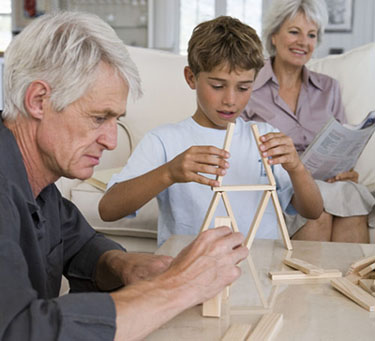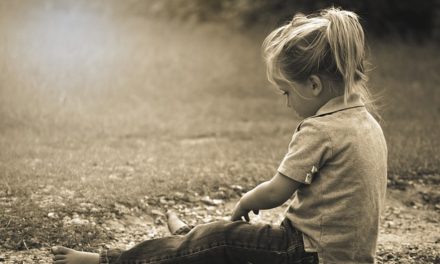What’s it like to be an elementary-age child growing up in today’s world? And how can we grandparents make the best investments in them that we can?
It’s a wonderful time of discovery and exploration.
There are many changes and challenges and great ways for us to engage them and help them grow and mature.
You may have some vague memories of that time in your life … maybe 50, 60 years ago or more. Then you raised your own kids, and their school-age years were surely much different from yours. Now there’s another generation of change added to the picture with your grandkids.
You’ve probably been around for some of their school activities, music performances and sports or other competitions. Yes, a lot has changed, but quite a few characteristics of those years are pretty much the same.
So, first, we need to understand and track with them.
At this stage, your grandchildren are out to see what life has to offer, to understand the world and become a citizen of that world. Starting school was a big milestone moment, and school continues to be one of the most prominent activities and shaping forces in their lives.
Along with that comes many more outside influences from teachers, coaches, youth sponsors and friends. At the end of this stage are the teen years, when those other people—especially friends—will play a much bigger role in their lives.
They’ll probably get their first cell phone during these years, which makes it easier for you to stay in touch, but it also brings a whole world of information and exposure to many more people, ideas and trends that may or may not be good for them.
Most kids are eager learners and very curious about many different things. They might want to try to get involved in everything that catches their fancy—three different sports, science club, scouts, violin, and drama. It can be a hectic time, and in most cases we grandparents aren’t the decision-makers in how busy their children’s schedules are, so it can be difficult to know our place, when to speak and when to stay quiet. Still we can be strong supporters and team players in our grandkids’ lives.
Some ways we can invest…
By now we have unique and precious relationships with each of our grandkids, and so some ways we get involved will be obvious and individualized. But here are some general guidelines to keep in mind with your school-age grandchild:
Be an active participant and facilitate the process. This shouldn’t be difficult, because we love hanging out with our grands. We show up to watch them play and compete, hear about their day at school, talk in the car, go to get ice cream, Facetime when we can’t be with them, and on and on. By being present and involved, we’re showing our grandkids that they’re being tracked and supported, and we’re helping to ground them in what they know to be true and reliable.
Children who are exploring the world, discovering new skills, ideas and relationships, need a guide who’s been there before, who can answer questions and point out danger signs. We are extra sources of all that who can offer our experienced, wise perspective.
Take an interest in what they are doing. As we’re involved in their lives and supporting their interests, we can take it a step further by being genuinely interested in what they enjoy and pursue. It might mean doing some research to learn about lacrosse or robotics, or it might mean asking lots of questions about volleyball strategies or what’s so fascinating about Legos. Maybe that will lead us to take them somewhere to help grow that interest. It might mean simply asking questions regularly about schoolwork and what happens during a typical school day, or even volunteering to help in their classroom. Getting to know their friends is a great idea. It’s all worth it to be able to share that connection. And in some situations, they’ll pick up an interest that we’re already familiar with, and we can make deeper and more regular connections.
Help to process what they are seeing and learning. Kids sometimes need to talk with someone outside their immediate family about day-to-day challenges. It’s our chance to tell a story or share our perspective on a similar experience from our past, or to give them a long-range view of what they’re learning in school and how their growing skills will be useful in the real world. Most of all, we can reassure them that, just like us, they’ll make it past their current frustrations and be fine—possibly with a valuable life lesson.
Be a source of peace. Life in today’s world can be hectic and complex for kids. Often, the time we spend with them can be a temporary and needed escape from that. We can be people who help them learn to enjoy the simple things, and at a slower pace. We know the wins and losses aren’t so dramatic in the long run. We make it a priority to just enjoy being together and can let go of many of the other details. We can be an important source of security—like a safe harbor from the stormy ocean of life.
What insights have you learned about connecting with elementary-age grandkids? Share your wisdom with others on our Facebook page here.





